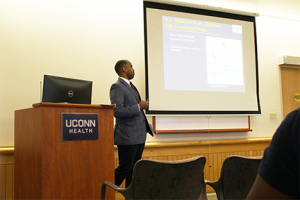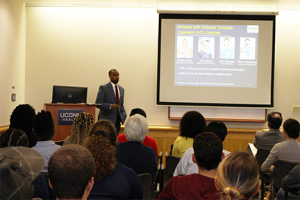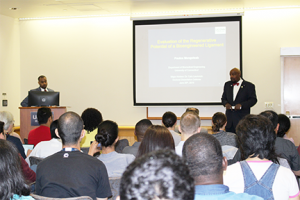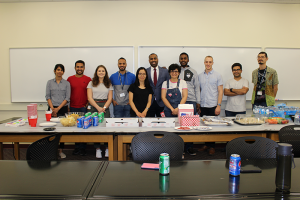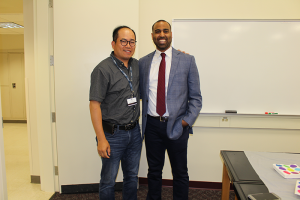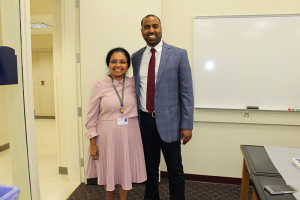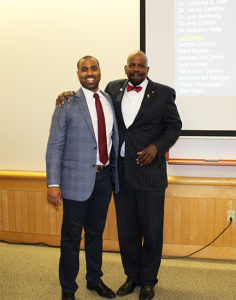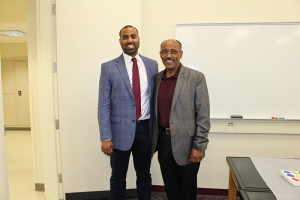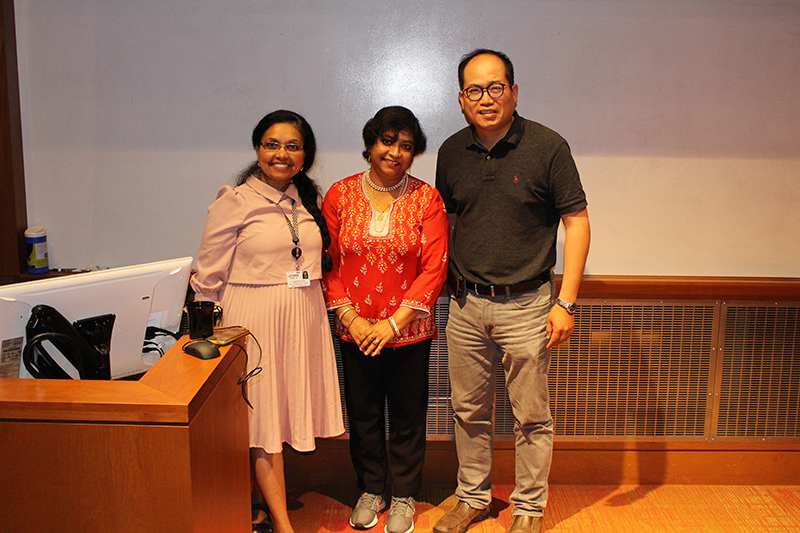On Tuesday, June 25, 2019 Connecticut Convergence Institute Graduate Assistant Paulos Mengsteab successfully defended his doctoral dissertation titled “Evaluation of the Regenerative Potential of a Bioengineered Ligament.” With years of support from his Major Advisor, Dr. Cato T. Laurencin, he passed his written dissertation and oral defense. The entire Connecticut Convergence Institute sends him a big congratulations and looks forward to seeing what is next for Paulos!
Abstract: The goal of this work is to evaluate the regenerative potential of bioengineered ligaments in a rabbit ACL reconstruction model. Bioengineered ligaments, composed of poly (l-lactic) acid (PLLA) microfibers, were fabricated by braiding and the effect of growth factor and bone marrow aspirate concentrate therapy to enhance regeneration on this matrix was assessed. To achieve this goal, three specific aims were undertaken: 1) development of a braiding machine to fabricate scalable bioengineered ligaments, 2) evaluation of the osteointegration of bioengineered ligaments with and without bone morphogenetic protein-2 (BMP-2) supplementation, and 3) evaluation of the effect of materials, bone marrow aspirate concentrate, and growth factors on the regenerative properties of bioengineered ligaments. Herein, we achieved the fabrication of a bioengineered ligament with a peak load up to 2500 N. Secondly, we found that the osteointegration of the bioengineered ligament in the bone tunnel is predominately anchored by Sharpey fibers, but that BMP-2 supplementation through saline injections did not promote greater bone formation in the bone tunnels. Third, the importance of surgical technique in the fixation of a bioengineered ligament in a rabbit ACL model was found with significantly improved results when fixing the graft in flexion. Additionally, the mechanical properties of the bioengineered ligament were the highest reported in a rabbit ACL model at 12 weeks. Furthermore, it was shown that a bioengineered ligament composed of an 83:17 blend of PLLA and polyethylene terephthalate demonstrates significantly higher mineral apposition rates compared to PLLA alone, which is hypothesized to be a consequence of reduced acidic byproducts. Finally, it was found that the regeneration of the bioengineered ligament undergoes a mechanism of endochondral ossification in the bone tunnel and that BMAC therapy promotes the presence of chondrocyte-like cells within the fibers of the ligament. It is theorized that the compressive forces placed on cells during tensile loading coupled with the low oxygen tension environment promoted the endochondral ossification seen. Overall, this work uncovers the mechanism of regeneration for bioengineered ligaments and provides evidence for the potential of complete bone tunnel regeneration.

